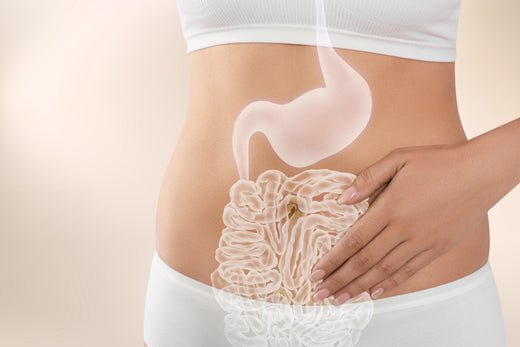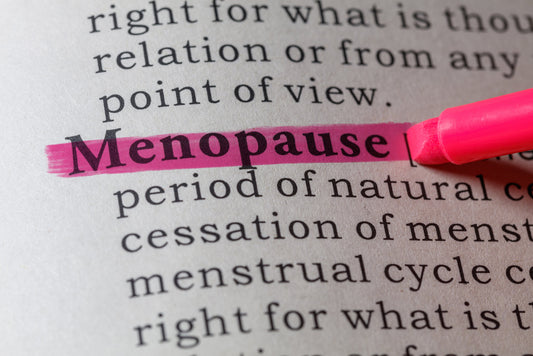Do you know what’s in the supplements you’re taking? Besides the list of vitamins, minerals or antioxidants in the nutritional label, what else could be in them? And how do you find out if those supplements contain bad ingredients and fillers and what those ingredients are?
Lucky for you, we compiled this definitive guide on 15 supplement ingredients that you should avoid at all costs. We'll outline exactly what each one is, why it's used, and their potential side effects. Bear with us, as we geek out a little bit on some of this stuff.
Here’s our list of ingredients to avoid in your supplements
The BAD 15 list:
- Artificial coloring: Red 40, Blue 1-2, Yellow 5
- Artificial flavors
- Artificial preservatives
- Artificial sweeteners
- EDTA
- High fructose corn syrup
- Hydrogenated oils
- Talc and magnesium silicate
- Shellac and other pharmaceutical glazes
- Titanium dioxide
- Lead, mercury and other harmful metals
- PCBs
- PFAS
- Propylene glycol
- Stearic acid
Here at BEST, we obsess over setting a higher standard for supplements and we meticulously test our formulations to make sure that none of the ingredients on this list ever make it to our products.
-
Artificial Colors
Artificial colors are added to supplements and other foods to make them more visually appealing. They provide no nutritional value and may even pose some health risks. The most common artificial colors used include Red 40, Yellow 5, and Blue 1.
Studies have linked artificial colors to disruptions in your gut microbiome and hormone levels, allergies, hyperactivity in children, and even cancer in animal studies. The European Union requires warning labels on foods containing artificial colors due to these potential health concerns but artificial colors are still widely used in the US without any required labeling.
-
Artificial Flavors
Artificial flavors are extremely common in processed foods and some vitamin gummies. They mask unpleasant tastes and are usually cheaper than natural ingredients.
Some artificial flavors may irritate the skin, eyes, lungs, and digestive system that can range from mild nausea and headaches to severe asthma attacks. Certain artificial flavorings also contain neurotoxic chemicals and potential human carcinogens like benzene and styrene.
Opt for natural flavorings or unflavored products instead.
-
Artificial Preservatives
Artificial preservatives like BHA, BHT, TBHQ, sodium benzoate, and potassium sorbate are added to supplements and other products to extend their shelf life. They are antioxidants that prevent fats and oils from going rancid.
TBHQ is a petroleum-based preservative that's been linked to vision issues and liver enlargement.
Sodium benzoate is recognized as safe by the FDA, but can form the carcinogen benzene when combined with vitamin C. Potassium sorbate is considered harmless in small doses, but large quantities may cause allergic reactions or DNA damage.
The bottom line is artificial preservatives allow for longer shelf life, but may expose you to potentially harmful chemicals. When choosing supplements, look for ones with preservative-free formulas.
-
Artificial Sweeteners
Artificial sweeteners like aspartame, sucralose, and saccharin are commonly added to foods and supplements marketed for weight loss or diabetes management. You may also find them in vitamin gummies.
Brands often promote these as "zero calorie" or "low calorie" sweeteners that can help with weight control without compromising taste. Research studies link the consumption of artificial sweeteners to increased risk of obesity, metabolic syndrome, type 2 diabetes, and cardiovascular issues. Artificial sweeteners appear to disrupt your good gut bacteria, increase insulin resistance, and alter appetite signaling in the brain.
Look for products that specifically state "no artificial sweeteners" or list stevia, monk fruit, or other natural alternative sweeteners instead.
-
EDTA
EDTA is another common preservative used in supplements and other products. It works as a preservative by binding to metals. This helps prevent oxidation and bacterial growth, allowing products to have a longer shelf-life. The problem is EDTA doesn't break down easily and can persist in the environment. It's been found in lakes, rivers and even drinking water due to its widespread use.
Studies have shown that EDTA can be toxic to aquatic life since it removes vital minerals from the water. There are also some human health concerns, as EDTA may impact calcium levels in the body. While the FDA deems it safe in small doses, we do not include it in any of our formulations.
-
High Fructose Corn Syrup
You’ve probably heard of this one. High fructose corn syrup (HFCS) is very common in processed foods and beverages.
HFCS is made by converting some of the glucose in corn syrup into fructose. This process results in a product that is incredibly sweet - sweeter than regular sugar! Food manufacturers love HFCS because it's cheap, easy to mix into foods and beverages, and a little bit of it goes a long way.
Some research has linked HFCS to obesity and diabetes. The theory is that the body processes fructose from HFCS differently than other sugars, promoting fat storage and insulin resistance. If this all sounds bad, that’s because it actually is.
-
Hydrogenated Oils
Hydrogenated oils are vegetable oils that have been processed to increase their shelf life and make them solid at room temperature. This process, called hydrogenation, involves adding hydrogen to unsaturated fat molecules to make them more saturated.
While this increases an oil's stability and shelf life, it also produces trans fats, which are linked to higher LDL (bad) cholesterol and lower levels of HDL (good) cholesterol. Consuming a lot of trans fats from hydrogenated oils is linked to an increased risk of heart disease and stroke.
-
Talc and Magnesium Silicate
Talc is a mineral made up of magnesium, silicon, and oxygen used in cosmetics and pharmaceuticals as an absorbent, anticaking agent and lubricant. Magnesium silicate is a white powder made of magnesium oxide and silicon dioxide. It's used for similar purposes as talc.
The issue with talc and magnesium silicate lies in their sourcing. Talc deposits are often found near asbestos, which can lead to asbestos contamination. Asbestos is a known carcinogen that causes lung disease and cancer. There have been many cases of talc products testing positive for asbestos over the years and it's been suggested that talc particles could potentially migrate from the gastrointestinal tract to other parts of the body, where they can cause harm.
To be safe, just avoid any products containing talc and magnesium silicate.
-
Shellac and Pharmaceutical Glazes
Shellac is a resin secreted by the afab (female assigned at birth) lac bug. The lac bug uses shellac to form a cocoon, and it's harvested for use in a variety of industrial applications. When it comes to supplements, shellac is often used to create a shiny coating on pills and tablets to make them easier to swallow, protect ingredients from moisture, and mask any unpleasant odors or tastes.
While shellac is considered safe for external use, there are concerns around ingesting it. When you swallow a supplement coated in shellac, you're essentially eating bug poop. There's no nutritional value in shellac and some people experience upset stomach or allergic reactions from ingesting shellac.
At BEST, we found a much better way to make our capsules taste better! Every bottle of BEST supplements comes with a naturally essenced heart-shaped insert that makes our capsules taste like lemon zest. Take that lac bug!
-
Titanium Dioxide
Titanium dioxide is a common additive found in many supplements and foods like chewing gum, donuts, and candy. It's often used as a whitening agent and to make products look brighter or more vibrant.
Although it’s commonly used, titanium dioxide is classified as a possible carcinogen. Studies on rats have linked high consumption to tumor growth. The effects on humans are less clear though. Some studies also show that titanium dioxide nanoparticles can trigger inflammation in intestinal cells.
-
Lead, Mercury and Other Heavy Metals
You’ve probably heard about this one. Heavy metals like lead and mercury can make their way into supplements through contaminated ingredients or cross-contamination during manufacturing. Even small amounts of these metals can be toxic over time.
Lead and Mercury are neurotoxins that can accumulate in the body and cause developmental and neurological problems. Methylmercury is the form that causes the most harm.
Arsenic, cadmium and aluminum are some other concerning heavy metals that have shown up in supplements on occasion. Cadmium is a carcinogen that is toxic to the kidneys, liver and bones. Arsenic exposure increases the risk of cancer. Aluminum has been linked to neurological diseases like Alzheimer's.
The bottom line is you want to avoid putting any amount of toxic heavy metals into your body, especially through supplements. Good news is: reputable supplement manufacturers test for these contaminants to ensure safety. We know we do!
-
PCBs: Persistent Chemicals that Persist in Our Bodies
PCBs, or polychlorinated biphenyls, are industrial chemicals that were widely used in electrical equipment, plastics, and paints until being banned in the 1970s and they still linger in the environment today. These persistent pollutants accumulate in the food chain, meaning the highest levels are found in animal fats.
Studies link high PCB levels to increased risk of cancer, especially in the liver and biliary tract. PCBs are also considered endocrine disruptors that can interfere with thyroid, reproductive, and neurological function.
Eating lower on the food chain focusing on fruits and vegetables and choosing organic products helps reduce exposure.
-
PFAS
PFAS (per- and poly- fluoroalkyl substances) are a group of man-made chemicals that have been used for decades in consumer products like non-stick cookware, stain-resistant fabrics, and food packaging.
PFAS are essentially indestructible. They resist heat, oil, stains, grease, and water and they persist in the environment and our bodies. PFAS have been detected in the blood of nearly all Americans tested and have been linked to various health issues like thyroid disease, decreased fertility, birth defects, increased cholesterol and cancer.
-
Propylene Glycol
Propylene glycol is a synthetic liquid that absorbs water and helps keep products moist. Propylene glycol also acts as a preservative and stabilizer.
Although the FDA recognizes it as "generally safe", propylene glycol has been linked to allergic reactions and skin irritation in topical products, may disrupt your endocrine system and may impact the central nervous system and liver.
The risks seem higher when propylene glycol is inhaled (such as in some vaping liquids), but many health advocates argue it's wise to limit exposure from supplements as well.
-
Stearic Acid
Stearic acid is a saturated fatty acid that is found in many foods like beef, cocoa butter, and milk. It's often added to supplements as a flow agent or lubricant during manufacturing.
Some people worry that stearic acid is bad for heart health, but the jury is still out. Multiple studies have found that stearic acid has a neutral effect on cholesterol levels compared to other saturated fats. It doesn't appear to raise LDL cholesterol or lower HDL cholesterol. But when in doubt, it’s best to avoid it.
How to Choose Safe Supplements
With so many concerning ingredients found in supplements, it can be tricky to know which brands you can trust. Here are some tips:
-
Check the label carefully. Read the ingredient list, not just the front of the bottle. Watch out for the ingredients on this list as well as other names you don't recognize.
-
Do your research on the brand. Look up the company online to see if they have a reputation for quality and transparency around their ingredients and sourcing. Stay away from brands that seem sketchy or don't disclose information about their products.
-
Buy from reputable retailers. Purchase supplements from well-known stores instead of discount outlets.
- Look for third-party certifications. Choose brands that have been certified non-GMO, or tested for purity by an independent lab like the NSF or USP. These certifications help verify quality standards.
![]()
BEST supplements are formulated with the most effective, science-backed ingredients out there, and nothing else. No fillers, no false promises, and no B.S.
Just the right doses, delivered the right way, with results that actually matter.
Because your BEST health starts with the BEST standards. And we’re here to deliver both.
*These statements have not been evaluated by the Food and Drug Administration. This product is not intended to diagnose, treat, cure, or prevent any disease.









